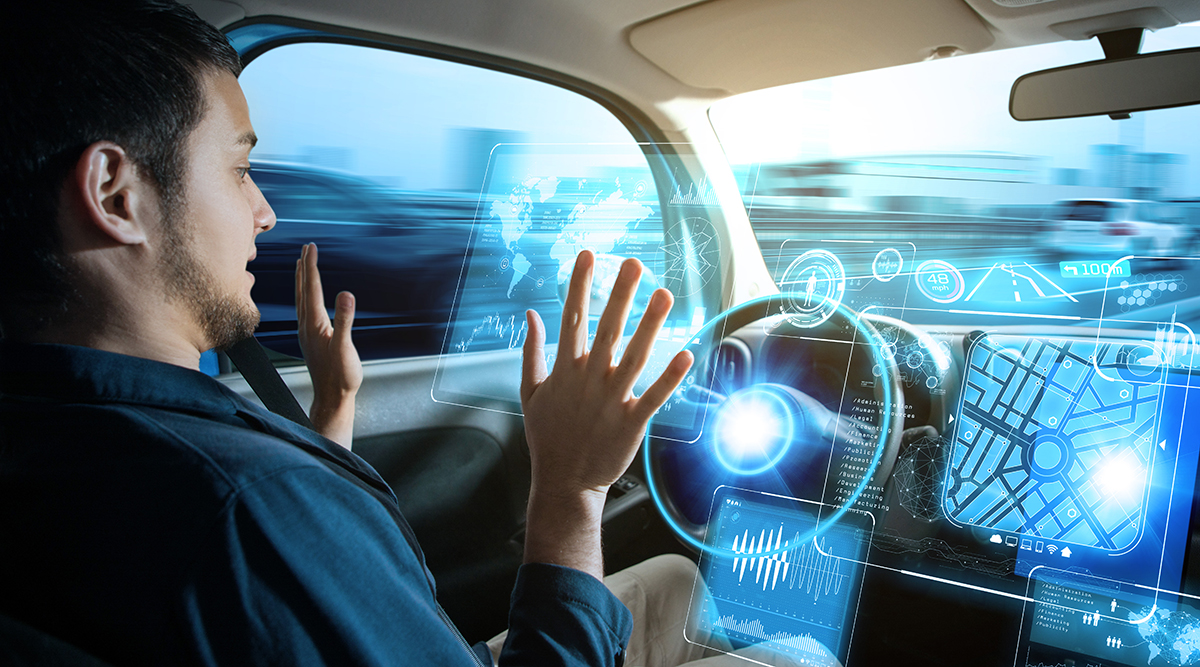Artificial intelligence (AI) is rapidly transforming major industries around the world. One of the industries undergoing tremendous change is the automotive industry. Automakers are integrating AI technologies across various vehicle systems and functionalities to enhance safety, convenience, driver assistance and autonomy. The automotive industry is on the cusp of a huge AI revolution that will change how vehicles are designed, manufactured and driven.
Impact of AI on Vehicle Design and Manufacturing
AI is already finding applications in vehicle design and manufacturing processes. Automakers are using AI and machine learning algorithms to virtually simulate new vehicle designs, test engineering specifications and optimize performance before physical prototyping. This allows automakers to detect and fix design issues early in the development cycle, reducing costs and shortening time to market. Computer vision algorithms are also helping automate various manufacturing tasks like quality inspection and defect detection on production lines. This is improving oversight, consistency and reducing human errors in vehicle assembly. Overall, AI integration is making vehicle design and production more efficient, cost-effective and quality-driven.
Enhanced Driver Assistance with AI
Many new vehicles now come equipped with advanced driver assistance systems (ADAS) that use Artificial Intelligence In Automotive, computer vision and sensor fusion technologies. Features like adaptive cruise control, active lane keeping assist, blind spot monitoring and automatic emergency braking use AI algorithms to monitor the driving environment, detect potential hazards and provide assistance to drivers. As the processing power and sensor capabilities increase, more advanced ADAS with functions like highway autopilot, autonomous parking and traffic jam assistance are becoming available in premium vehicles. Such AI-powered driver assistance technologies are substantially enhancing safety, convenience and reducing driver workload during routine driving situations.
Towards Higher Levels of Automation
The long-term goal of automakers and tech companies is to develop self-driving cars that don’t need human oversight. Significant progress is being made towards higher levels of automation (SAE Level 3 and above) with AI at the core. Advanced neural networks are able to process vast amounts of traffic data, recognize object types, anticipate movements and automatically navigate streets with minimal human intervention in some conditions. Researchers are also working on developing self-supervised learning approaches for AI systems to gain experience and handle uncommon situations during autonomous driving. While fully autonomous vehicles are still years away, AI is undoubtedly laying the foundation for vehicle automation and revolutionizing the driving experience going forward.
AI for Personalization, In-Cabin Experience and Mobility Services
Automakers are leveraging AI beyond just vehicle functionality – to offer personalized in-cabin experiences, innovative mobility services and transform the ownership model. Based on user profiles and behavior patterns, AI-powered vehicle infotainment systems can learn driver preferences for seating, climate control settings and media. This enhances comfort. AI assistants offer convenient access to vehicle features, navigation and other connected services via natural interactions. New business models leveraging AI are emerging too – from self-driving taxis and robo-deliveries to intelligent fleet management solutions – completely changing notions of vehicle ownership. As connectivity and data analytics advance, personal AI companions in cars will become increasingly helpful for diverse ownership and lifestyle needs.
Cybersecurity Challenges with Increased Connectivity
While the benefits of AI and connectivity are huge, the complex electronics and software in advanced vehicles also introduce cybersecurity vulnerabilities that need addressing. As vehicle systems network with external infrastructure and cloud services for updates and shared functionalities, hackers can potentially exploit communication channels and firmware/software flaws. This could disrupt critical vehicle operations or even enable hijacking in worse cases. Automakers therefore have to develop secure architectures, adopt rigorous testing protocols and deploy AI-based threat detection mechanisms to protect vehicles from cyber-threats in an evolving landscape. With AI both enabling new functionalities and guarding against threats, cybersecurity remains an important challenge to safe adoption of intelligent driver technologies.
AI is revolutionizing every facet of the automotive sector from design to production, vehicle systems, mobility services and ownership models. From improving manufacturing efficiencies to developing self-driving vehicles of the future, AI technologies will continue transforming automobiles at a rapid pace. While cybersecurity threats need mitigation, advanced driver assistance features using AI are already enhancing safety significantly. As AI capabilities progress further, the driving experience promises to become more automated, personalized and convenient in the years ahead. The automotive revolution powered by AI looks set to transform transportation as we know it.
*Note:
1. Source: Coherent Market Insights, Public sources, Desk research
2. We have leveraged AI tools to mine information and compile it

